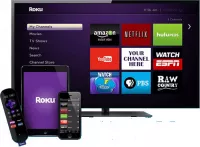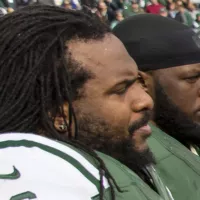Quibi was a short-lived, short-form streaming service founded by Jeffrey Katzenberg and led by CEO Meg Whitman. Launched in April 2020 with $1.75 billion in funding, it aimed to deliver mobile-friendly content. However, Quibi failed to meet subscriber targets and shut down in December 2020. Its content library was later sold to Roku for under $100 million. The platform became known as a high-profile failure and was widely mocked.
August 2018: Quibi Founded as NewTV
In August 2018, Quibi was founded as NewTV by Jeffrey Katzenberg and led by Meg Whitman as CEO.
October 2018: NewTV Renamed Quibi
In October 2018, NewTV was officially renamed Quibi.
July 8, 2019: BBC Studios Invested in Quibi
On July 8, 2019, BBC Studios announced its investment in Quibi.
March 9, 2020: Quibi Filed Lawsuit Against Eko
On March 9, 2020, Quibi filed a lawsuit against interactive video developer Eko, seeking a declaration of non-infringement of Eko's patented technology. Eko subsequently filed a countersuit.
March 2020: Quibi Partnered with Bell Media
In March 2020, Quibi announced a partnership with Bell Media, a Canadian telecommunications company. Bell Media would produce Canadian news and sports content for Quibi via CTV News and TSN.
April 2020: Quibi Announced Launch
In 2019, Quibi announced it would launch in April 2020 with two pricing tiers.
May 3, 2020: Elliott Management Funded Eko's Lawsuit
On May 3, 2020, Elliott Management announced it would fund Eko's lawsuit against Quibi in exchange for equity in the company.
July 2020: Quibi's Subscriber Conversion Rates Reported
In July 2020, Sensor Tower reported that about 8 percent of Quibi's early wave of users had converted into paying subscribers.
September 2020: Quibi Looked for Potential Acquirer
In September 2020, Quibi was reportedly looking for a potential acquirer, raising more funds, or becoming a public company via a shell corporation.
September 20, 2020: #FreeRayshawn Won Two Emmy Awards
On September 20, 2020, Quibi's series, #FreeRayshawn, won two Emmy Awards.
October 21, 2020: Quibi Announced Shutdown
On October 21, 2020, Quibi announced it was shutting down, just six months after its launch. The news was confirmed by Jeffrey Katzenberg and Meg Whitman, citing financial irresponsibility and the impact of the pandemic.
November 2020: Reasons Suggested for Quibi's Shutdown
In a November 2020 article, reasons suggested for Quibi's shutdown included misjudgment on programming and technology features appealing to young consumers, and high advertising spending. The platform's failure inspired widespread mockery.
December 2020: Quibi Shut Down
In December 2020, Quibi shut down after failing to meet subscriber projections.
January 3, 2021: Roku in Talks to Acquire Quibi's Library
On January 3, 2021, it was announced that Roku was in advanced talks to acquire rights to Quibi's library.
January 8, 2021: Roku Announced Acquisition of Quibi's Programs
On January 8, 2021, Roku officially announced that all of Quibi's 75 programs would be streamed on their platform, The Roku Channel. The content was acquired for less than $100 million.
January 2021: Quibi's Content Library Sold to Roku
In January 2021, Roku, Inc. acquired Quibi's content library for less than $100 million.
Mentioned in this timeline

Roku Inc is an American company that owns the Roku...
Germany officially the Federal Republic of Germany is a nation...

News encompasses information about current events disseminated through various media...
Australia officially the Commonwealth of Australia encompasses the Australian mainland...
Canada is a North American country the second largest in...

September is the ninth month of the year in the...
Trending

29 minutes ago Salsa Legend Willie Colón Dies at 75: Bronx-Raised Musical Pioneer
1 hour ago Juventus faces crisis after Como's lesson at Stadium; Roma may extend lead.

2 hours ago Elina Svitolina defeats Coco Gauff, faces Jessica Pegula in Dubai final.

2 hours ago Dusty May on Naismith Watch List: Coach of the Year Potential?
2 hours ago James Milner Breaks Premier League Appearance Record: Klopp Praises His Impact

3 hours ago Team Homan’s Olympic Curling Journey: Semifinal Setbacks and Future Games
Popular

Jesse Jackson is an American civil rights activist politician and...
Randall Adam Fine is an American politician a Republican who...

Barack Obama the th U S President - was the...

Ken Paxton is an American politician and lawyer serving as...

Bernie Sanders is a prominent American politician currently serving as...

Michael Joseph Jackson the King of Pop was a highly...
